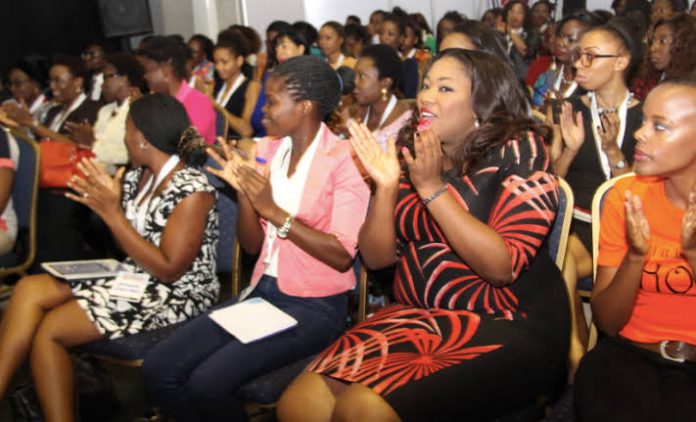Women have decried the continuous dominance of the political and decision-making space in the country by men, describing it as retrogressive and capable of slowing down the nation’s overall development.
The women who were reacting to a recent report by the National Bureau of Statistics (NBS) which shows that women are poorly represented in the nation’s decision-making process, said that as long as women are kept in the background, Nigeria will continue to suffer from poverty and and other societal malaise.
The NBS in its Statistical Report on Women and Men in Nigeria 2021 said despite all efforts to promote the contribution of women in the domain of politics and decision-making, women have continued to
record low representation at all tiers and levels of governance even when they constitute almost half of the electorate.
Quoting data from the Office of the Secretary to Government of the Federation (SGF), NBS said the number of males and females appointed as Ministers from 2016 – 2019 has not gone beyond seven.
According to the report, “In 2016 only seven females were appointed as Ministers, this decreased in 2017 to only five females. Female Ministers appointed in 2018 and 2019 were six and seven respectively.”
The report said in Nigeria, women have never been appointed as secretary to the government of the federation nor elected as President or Vice President since independence and the return of democracy in 1999 to the last election in 2019.
“Also, women have been underrepresented in the National Parliament. The highest representation in the National Parliament of 7.2 per cent was recorded in 2007-2011, it was 6.6 per cent each in 2011 – 2015 and 2015 – 2019. A total of six women and 73 men occupied principal positions in the Senate in 2016 and 2017.
“The years 2018 and 2019 have the same figure of seven women and 72 men as principal officers. In 2016 – 2019, only six women occupied the position of committee chairperson for each year. In 2018 and 2019, a woman occupied the position of Minority Leader in the Senate. The current Women’s representation in National Parliament (National Assembly) 2019 was 6.2 per cent,” the NBS report said.
Reacting to this low level representation of women, Director, Capital Multimedia Limited, Mrs. Salomey Eferemo said Nigeria is not yet ready for women involvement in leadership.
She said the major draw backs for women in politics are cultural nuances that are not properly modified to allow women participate independently in politics, religion as well as the excessive use of money in Nigerian politics.
She said most of the women that are active in politics hardly has the support of their spouses, their brothers or even their sisters, because they believe that women who are involved in politics are women who are not decent and morally upright. “So the women feel stigmatized and so instead of being stigmatized, they decide to stay away,” she said.
“The implication is that women have been relegated back to where culture put them that we all are struggling to come out from and say women should be educated, if you educate a woman you educate a nation, education is not just knowing how to read, but having a broad perspective of life and applying it to your advantage. Where women are not able to do that, poverty will increase because women have not been able to take the mantle of leadership in the space of the economy.
“However, what is happening in Adamawa right now puts to question if the women are themselves ready for power. With what is happening in Adamawa right now, women are on trial. I am still expecting a respected woman politician to comment on whether what Binani is doing is correct.”
On her part, Coordinator of 100 Women Lobby Group and President Change Managers Network, Felicia Onibon, said the Nigerian political arena is infected with money, “anywhere there is monetary gain, the men tend to push the women aside, but life is not just about money, there are other things we need to bring to the table to make development happen,” she said.
She noted that the situation is bad, “we are complaining about culture, apathy and religion, but we are not the only country that has a culture, we know cultures evolve, they are not static. I don’t know the reason why patriarchy in Nigeria has been taken to the extreme. “If you look at how Nigeria got independence, the dexterity and the vigor with which our leaders then challenged the colonial masters, one would have thought that that same vigor would have been applied to anything that will bring about positive development including women empowerment.”
She said that Nigeria is losing out and it will continue to lose out if women are not given the opportunities that they should normally have.


